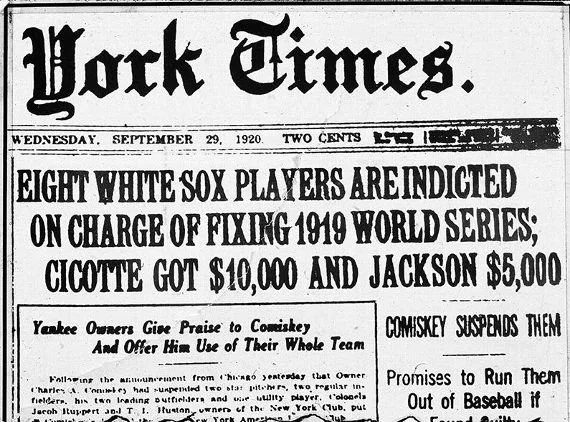When People Disappoint You: Part 1
We cannot help ourselves.
It seems to be human nature to identify another human for admiration and revere them from afar. From the time we are children, we form attachments to people - be it athletes or creatives - who are celebrities. Over time, these idols may be replaced by mentors and close friends whom we admire on a more personal level. There is unflinching truth we must face though, realizing that people we look up to as kids, teens and adults, will someday disappoint us.
We are partly to blame. By holding the people we admire in such high esteem, we forget they are real people, with all the nuance and messiness that represents.
Social media adds a new lens to how we see those we look up to.
It gives us glimpses of people that are at odds with how we know them to be. Presenting themselves as more successful, more knowledgeable and more beautiful. When it comes to celebrities, social media gives us opportunities to feel more attached than ever. The immediacy of today’s feedback loop and its enragement algorithm design means we may not have time to discern how we truly feel about someone before being asked to cast judgment. Our ability to internalize our own feelings weakens, affecting decision-making at work and at home. We’ll get to that in part two. Starting there is too big a leap and too personal.
Let’s dip our toes in the water with the low stakes/high emotions of celebrity disappointment.
Say it ain’t so, Joe.
Sports fans know the road to disappointment. We’ve made heroes out of players simply because of the jersey they wear. Are they talented? No doubt. The highly competitive nature of their lifestyle also means they are susceptible to cutting corners or finding a way to make the money last longer.
The 1919 Chicago ‘Black Sox’ scandal was front-page news.
The athletes I really admired growing up were gymnasts. The only major scandal for them, at that time, was the occasional defection from East to West. Despite this lack of investment in the wider sports world, even I can list off numerous performance-enhancing drug scandals without blinking. Track star Ben Johnson won, and lost, the 1988 Olympic gold medal for Canada. The slugger steroid era in Major League Baseball ran from 1994 - 2004. The more sophisticated scandal of the U.S. Postal Service Pro Cycling team, including blood transfusions, cast a pall on the Tour de France and tarnished the survivor story of Lance Armstrong.
When the news breaks, fans cycle through emotions (denial, anger, loss) to eventually land on acceptance, where they justify the cheating, or disappointment and a sense of betrayal. With the push for legalized sports betting expanding in North America, the number of players or teams throwing a game for the payout a la Chicago Blacksox is bound to increase. In fact, it is already underway. I’m willing to bet fans will be justifying the bad behaviour of their favourite players a good deal in the coming years. Pun intended.
The People Problem
Between 24/7 news programming and social media, we feel we know everything about anyone. Since neither of these mediums truly has enough quality information to be sustainable, they are both primed for negativity. They tell us who and what to be angry about and encourage us to cast judgment rapidly. Instead of evaluating this information critically; experiencing and internalizing our acceptance or discomfort with this new data, it is thrust upon us. Often, for reasons of no real consequence to our own life.
Right now, I could post admiration for a celebrity, any celebrity, and the judgment will be immediate.
‘How can you like them? They vote Republican!’
‘Don’t you know they’re vegan? What’s wrong with you?’
‘Are you an idiot? Remember, 20 years ago, when they said something stupid, and we should hold that against them for the rest of their life?’
The above is just another day ending in Y. This is not a post defending famous people. Simply stated, someone who is famous is still a real person. Not better than us. Not a hero. And definitely, not cookie-cutters of whom we want them to be. It speaks volumes about us when we feel the need to harp on the differences that don’t matter, as though finding out the dietary habits of a celebrity is truly a soul-crushing experience.
There are two primary downsides to this rush to judgment when we feel disappointed.
First, honest question here, why do we give a flippity-flying-flip what someone else eats? Or who they are dating? Or what brand they are now promoting? I get the general interest of celebrity gossip magazines, but to take to Twitter and eviscerate someone because they started dating someone who doesn’t live up to your standards is just - weird.
You admire this person because they can throw a ball really, really fast; they deliver a line reading that makes you tear up; or they write a story that makes you feel seen. These are qualities we can appreciate. Nothing deserving of hero status. And certainly, nothing that invites a level of vitriol if you feel disappointed by a personal choice they make regarding their life.
Second, what is this snap judgment doing to our personal ability to identify, internalize and wrestle with our own evolving values? When the outside world projects its views so forcefully on us, do we make time to reflect on how we really feel? Do we even know when to care and when not to? What requires action and what can be ignored?
Imagine, your social media feed is bombarded with a litany of insignificant reasons why you shouldn’t like a singer. A singer you enjoy. Subsequently, news breaks that the same singer did a very bad thing. The kind of thing that should genuinely give you pause. Except you’ve never really reflected like this before. You try listening to their music, and instead of enjoying it, now you feel uncomfortable. Your brain is wired to respond to the negative, but it is directed at the wrong target. You blame everyone else for ruining this thing that you loved!
They took it away from you.
Conflating the trivial with the unforgivable risks us failing to recognize our own complexity as humans. The methods we use to justify the decision to like or not like something. These feelings are messy and full of contradictions. They are fluid. They require reflection. And they are personal.
Mental Gymnastics
We compartmentalize more serious transgressions to avoid inconveniencing ourselves. Applying contradictory justifications to different people based on whether or not it suits us.
Arrested Development, where Tobias just ‘blue’ himself. Again.
The original Scooby-Doo cartoon was one of my childhood joys. As an adult, I find it difficult to focus on the red herring with all the racist tropes flying around. Did I recognize the racism incorporated as a kid? Of course not. Today, I find those early shows unwatchable. How can I say that when I’m specifically drawn to the irreverence of Arrested Development (seasons 1-3) and Archer (seasons 1-6)? Easy. I justify the difference between racism projected in a children’s cartoon and satirical programs made for adults which poke fun at people who hold those beliefs.
You might see this distinction as clearly as I do. You might think I’m splitting hairs. You might think I’m awful for enjoying those two shows.
Another justification? Thriller was one of the first audio cassettes I ever bought. The Billie Jean poster was on my childhood bedroom wall in the early-‘80s. It is no overstatement to say Michael Jackson’s music and music videos are part of my childhood soundtrack. Decades later, we learned an awful truth regarding the King of Pop. My memories remain intact, yet, I will never again contribute a penny towards his estate. When creating our wedding playlist, his music was left off it.
I refuse to allow his unforgivable actions to tarnish my innocent childhood memories while simultaneously and intentionally refusing to financially support his music after I became aware. Even so, it depends on the day whether or not I’ll skip his songs when they play on the radio.
See? It is messy. And you can easily counter my mental gymnastics. I might even feel completely different in a few years.
You and I live different lives, with our unique experiences and the passage of time shaping our reactions to the world around us.
What I hope, is that you make time to reflect on how many of your responses are truly yours. Do you discard the irrelevant? Do you act on the serious? Have you considered how forming an attachment to someone before you learn the details of their transgression, influences and complicates your decision-making?
Why am I asking?
I just spent four minutes of your life discussing utter nonsense. About our knee-jerk, emotional reaction to feeling disappointed by…celebrities. The internal conflict we sometimes feel, if we even consciously think about it at all, when our disappointment involves the actions of a complete stranger.
Now it’s time to ask,
What happens when the person who lets you down, is someone you know?
Enjoyed this story? Support my writing here or subscribe below to receive these stories directly in your inbox.



